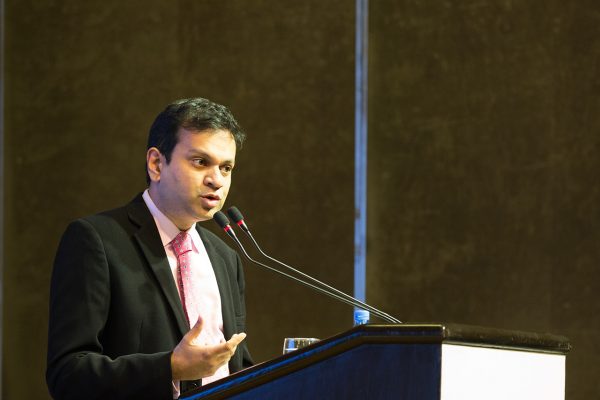Reading Time: 2 minutes
BRAC hosted a seminar on April 16, 2012, presented by our Research and Evaluation Division (RED) on: The role of incentives and institutions in promoting education for adolescent girls: Insights from research and practice. Director of Gender Justice & Diversity Ms. Sheepa Hafiza and Prof.
BRAC hosted a seminar on April 16, 2012, presented by our Research and Evaluation Division (RED) on: The role of incentives and institutions in promoting education for adolescent girls: Insights from research and practice. Director of Gender Justice & Diversity Ms. Sheepa Hafiza and Prof. W.M.H. Jaim, Guest presenters Dr Niaz Asadullah and Dr.Zaki Wahhaj, and Chief guest Ms. Rasheda Chowdhury and Dr. Binayak Sen, all gave incredible insight that hopefully provoked some form of reaction in each person that will result in an exchange of dialogue to take a stand and contribute to the research and initiatives being taken to pave a way for girls to receive an education in a safe, comfortable environment.Girls in Bangladesh face a different and devastating reality. Recently, there is an increasing number of news and information on incidents of sexual harassment, murder of teachers and parents, and suicide of students and parents, increase number of drop outs, victims are pushed into early marriages, hinders development, high psycho-social tension in society, restricts mobility, of girls in particular, builds fear and diminishes confidence, and ultimately deprives youth of any education, let alone future. In Bangladesh, almost 90% of girls aged 10-18 have been victims of S.H ( BNWLA-2010) with 36% of girls experiencing such S.H. in front of their schools ( Baseline survey report on MEJNIN programme, 2010, BRAC).
Researchers such as Dr. Niaz Asadullah and Dr.Zaki Wahhaj have dedicated themselves to understanding female schooling and social norms that maybe affecting the enrollment of girls in secondary schools. Their research looks at the institutional origin of the growth in enrolment which highlights the hidden challenge to female education arising from social and/or cultural barriers to female mobility in Bangladesh. Both Dr. Niaz Asadullah and Dr.Zaki Wahhaj provided critical information based on the key pathways through which Bangladesh has made exceptional progress in improving access to secondary education for girls over the last two decades with a particular focus on incentives and institutions.
BRAC has made education a priority, as a result, a innovated scheme called MEJNIN, has been implemented in directly supporting secondary school going adolescent females in overcoming social barriers in the form of sexual harassment. Director of Gender, Justice & Diversity Ms. Sheepa Hafiza explained how the institutional context in which the incentive scheme was introduced played an important role in successfully bringing a large number of girls into the secondary education cycle. MEJNIN’s goal is to build awareness and confidence of students (girls and boys) and community members to protect and protest sexual harassment, and establish and form an alliance with government and non-government leaders.
As the seminar ended, Chief guest, Ms. Rasheda Chowdhury, Executive Director (CAMPE), asked some questions that demand immediate attention. These girls, and boys, going to school are our children, brothers, and sisters and what are we doing to ensure their security? What message are we trying to give the government and are we packing it in such a way that they sense our urgency? The problems and social barriers are evident, and BRAC has and will continue to make education and the rights of girls and women its priorities. But drastic changes can only be made, when each individual realises the fact that they play an important role in the lives of these children, from the maastan who teases little girls on their way to school, to the teachers who harass them in the classroom.





